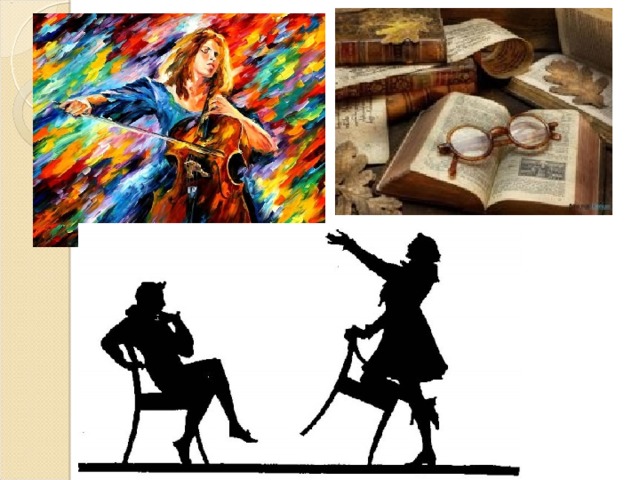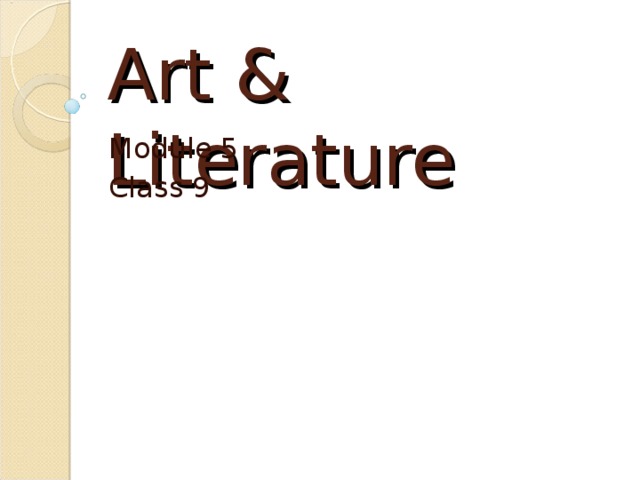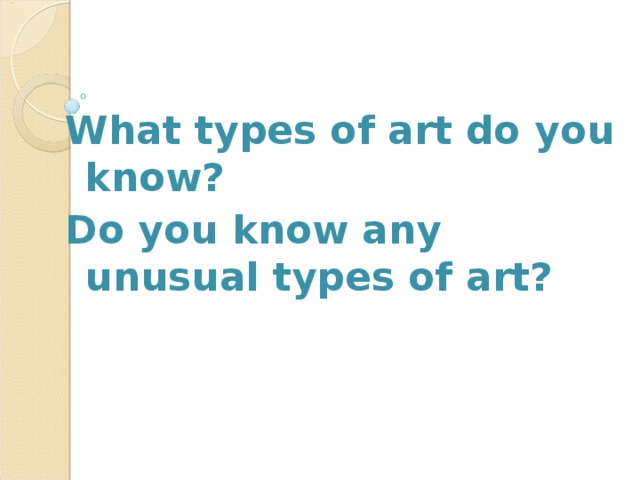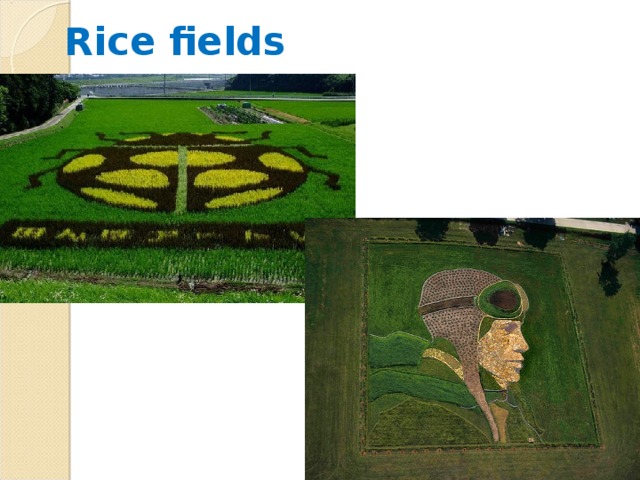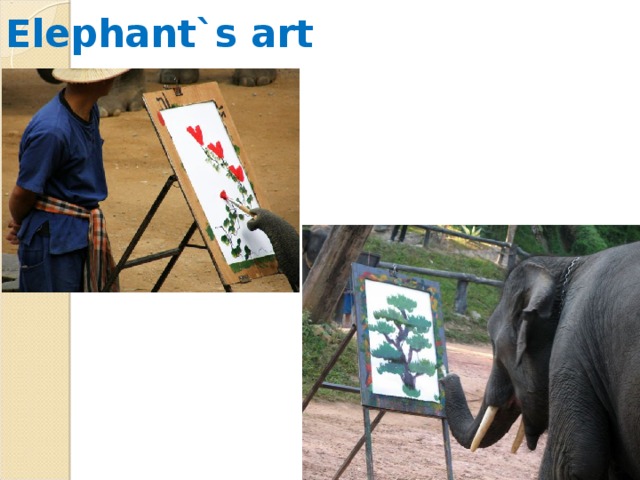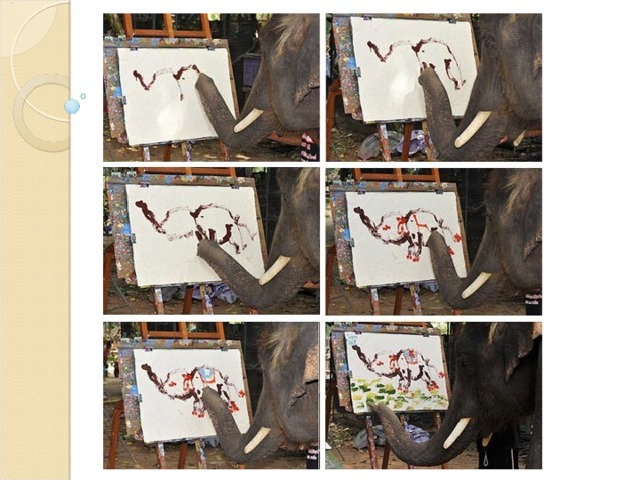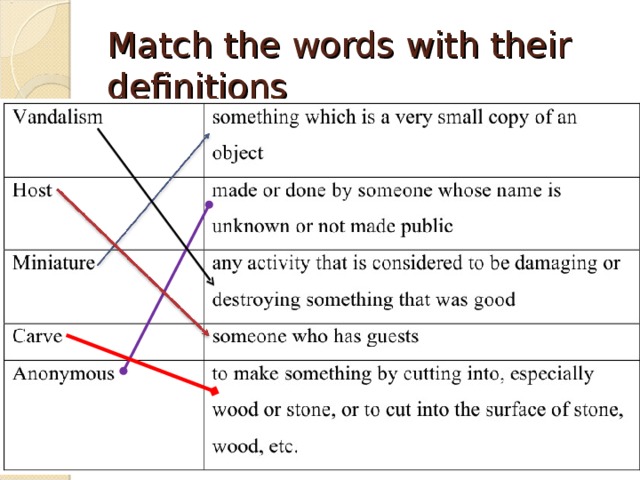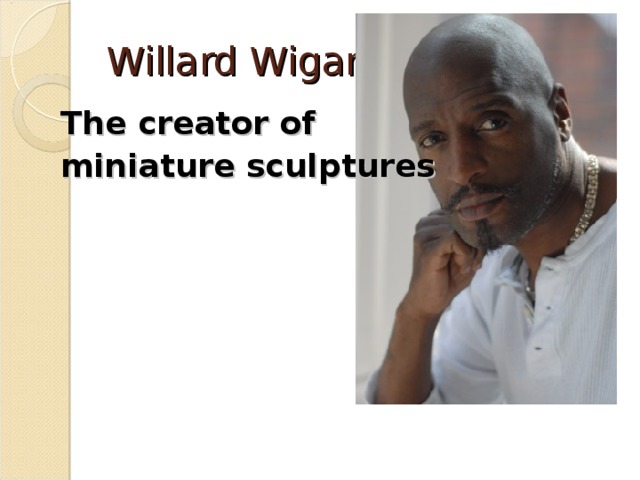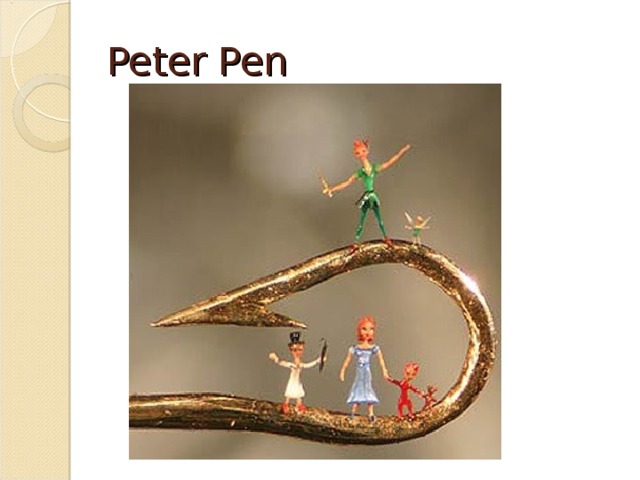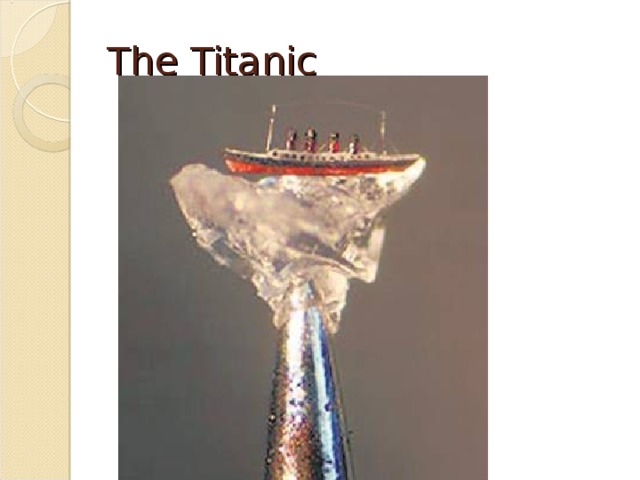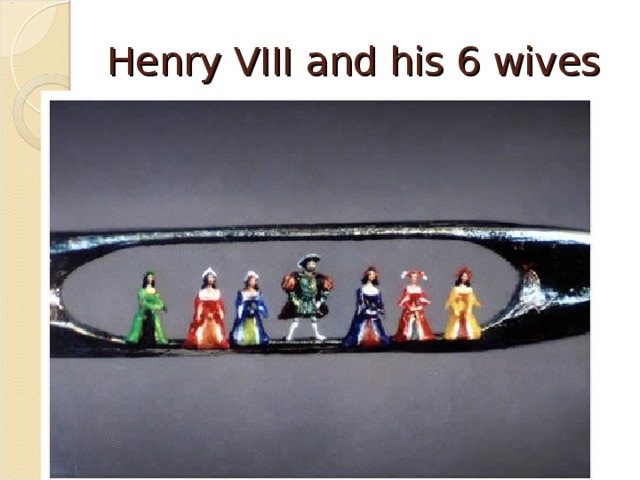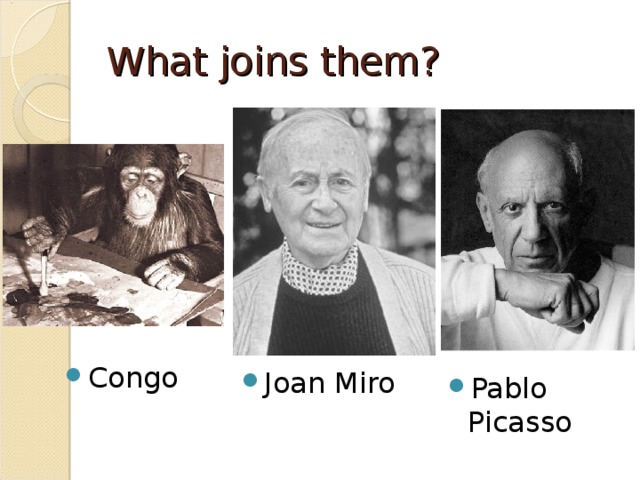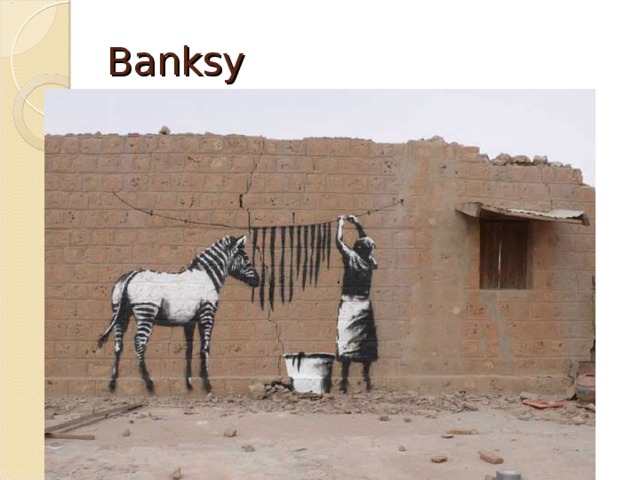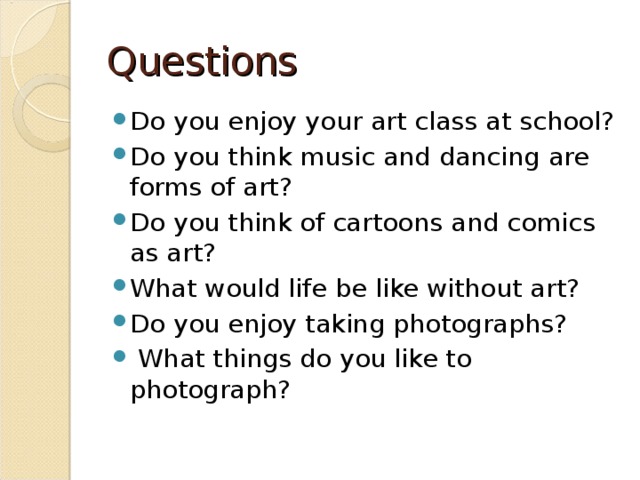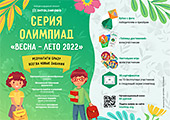NAME: DATE:
MODULE: 3-4 FORM: 9
1. Read definitions of some words from the texts at pp.42-43, SB and
decide which word is defined.
|
1. When you see something or someone, especially that is rare or trying to hide. |
a) whirlpool |
|
2. A small area of the sea or other water in which there is a powerful circular current of water which can pull objects down into its centre. |
b) violent |
|
3. A sea animal with a long body and ten arms situated around the mouth. |
c) ape |
|
4. Sudden and powerful. |
d) sighting |
|
5. An animal like a large monkey which has no tail and uses its arms to swing through trees. |
e) squid |
Ответ:
2. Complete the sentences using the words from the table in ex. 1.
1. This is the first _____________ of this particularly rare bird in this
country.
2. I’m scared of _____________ thunderstorms.
3. Chimpanzees and gorillas are both _____________.
4. ______________ are very dangerous: they make the object drown.
5. ______________ are members of the Cephalopoda class.
3. Put the verbs into the correct tense (Past Simple or Past
Progressive).
— While Tom _____________(read) Amely ______________(watch)
a documentary on TV.
— Marvin ________(come) home, ___________(switch) on the
computer and ______________ (check) his emails.
— The thief _____________(sneak) into the house,
___________(steal) the jewels and ______________ (leave)
without a trace.
— Nobody ______________(listen) while the teacher
______________(explain) the tenses.
— While we ___________(do) a sight-seeing tour our friends
___________(lie) on the beach.
— He ________(wake) up and __________(look) at his watch.
4. Put the verbs into the correct tense (Past Simple or Past Perfect).
— The removal van __________(arrive) before they
_____________(finish) packing.
— Before they ___________(move) to this town, they _________(live) in
Chicago.
— After the kids ___________(eat) their lunch, they __________(take) a
little nap.
— After school we always _________(meet) at the youth club.
— Soon after sunrise we __________(cycle) to an observation point that I
______ never ______(hear) of before.
— When I _________(come) home, my mother ______ already
_________(prepare) dinner.
— When Monica ___________(finish) her homework, she
____________(go) out to play with her friends.
— When we ____________(meet) Andrew, we ____________(tell) him
about our plans.
5. Complete the sentences with used to/would.
— We ________________live in a small town, but now we live in
Moscow.
— Whenever Kate was hungry, she ________________ eat a small
piece of cheese.
— I ________________ play football a lot when I was at school.
— She was very generous. No matter how much she had, she
________________ always share it with people in need.
— Tom _________________think Nick was unfriendly, but it turned
out that he was a really nice man.
KEYS
1. 1-d, 2-a, 3-e, 4-b, 5-c
2. 1. This is the first sighting of this particularly rare bird in this country.
2. I’m scared of violent thunderstorms.
3. Chimpanzees and gorillas are both apes.
4. Whirlpools are very dangerous: they make the object drown.
5. Squids are members of the Cephalopoda class.
3.
— While Tom was reading Amely was watching a documentary on
TV.
— Marvin came home, switched on the computer and checked his
emails.
— The thief sneaked into the house, stole the jewels and left without a
trace.
— Nobody was listening while the teacher was explaining the tenses.
— While we were doing a sightseeing tour our friends were lying on
the beach.
— He woke up and looked at his watch.
4.
— The removal van arrived before they had finished packing.
— Before they moved to this town, they had lived in Chicago.
— After the kids had eaten their lunch, they took a little nap.
— After school we always met at the youth club.
— Soon after sunrise we cycled to an observation point that I had
never heard of before.
— When I came home, my mother had already prepared dinner.
— When Monica had finished her homework, she went out to play
with her friends.
— When we met Andrew, we told him about our plans.
5.
— We used to live in a small town, but now we live in Moscow.
— Whenever Kate was hungry, she would eat a small piece of cheese.
— I used to play football a lot when I was at school.
— She was very generous. No matter how much she had, she would
always share it with people in need.
— Tom used to think Nick was unfriendly, but it turned out that he
was a really nice man.
Card 12 (Module 3, Unit 3a)
1. In each line underline one word that doesn’t belong to the group:
a) hook, tentacle, tail, extinct;
b) sharp, head, giant, horrifying;
c) mythical, ape, squid, hedgehog;
d) humped back, short neck, snake-like head, survive.
2. Read definitions of some words and decide which word is defined.
| 1. When you see something or someone, especially that is rare or trying to hide. | a. whirpool |
| 2. A small area of the sea or other violent water in which there is a powerful circular current of water which can pull objects down into its centre. | b. ape |
| 3. A sea animal with a long body and ten arms situated around the mouth. | c. sighting |
| 4. Sudden and powerful. | d. squid |
| 5. An animal like a large monkey which has no tail and uses its arms to swing through trees | e. violent |
3. Complete the sentences using the words from the table in ex. 2:
1. This is the first _____________ of this particularly rare bird in this
country.
2. I’m scared of _____________ thunderstorms.
3. Chimpanzees and gorillas are both _____________.
4. ______________ are very dangerous: they make the object drown.
5. ______________ are members of the Cephalopoda class.
4. Sort the characteristics of three creatures given below in the columns:
Huge eyes, giant tentacles, a long tail, a snake-like head, two-legged, a humped back, long arms, a short neck, sharp hooks, a hairy body
- Match the activities with the places where you can do them.
- Buy some apples and oranges
- Newsagent’s
- Buy a magazine, a newspaper, a greeting card
- Grocer’s
- Your house is on fire
- Chemist’s
- You are not satisfied with your hairstyle
- Baker’s
- You ‘ve got a headache.
- Hairdresser’s
- You need to buy some bread for dinner
- Butcher’s
- You want to cook a roast beef.
- Supermarket
- You’ve got a big shopping list.
- Fire Department
- Find the opposites for the next adjectives. Write down 5 sentences using these adjectives.
Sociable –
Helpful –
Selfish –
Talkative
Caring –
Forgetful –
Generous –
Stupid —
Card 11 (Module 2, Units 2e-2f)
- Form nouns from the adjectives given below using suffixes. Complete the sentences with these nouns.
Important, arrogant, active, secret, urgent, secure, kind, quiet
| -ance | -cy | -ence | -ness | -ity |
- Physical ______ is very important to stay healthy.
- My neighbor is full of __________. He believes he is never wrong.
- I miss the ___________ of the countryside.
- We have installed a ____________ system at out cottage.
- There is no __________ to do it right now.
- Thank you for your ____________ and hospitality.
- We all should understand the _____________ of such activities.
- Match the meaning with the phrasal verb.
|
|
|
|
|
|
|
|
|
|
3. Complete the sentences with the appropriate phrasal verb.
1. He made ____ pretty well after switching jobs.
2. I had to make _____ my home work again as I made some mistakes.
3. How do you make ____ for being late to your own wedding?
4. Scott made ___ the refrigerator as soon as he walked through the door.
5. It took the clown 10 minutes to make ____ his face.
Card 12 (Module 3, Unit 3a)
- In each line underline one word that doesn’t belong to the group:
- hook, tentacle, tail, extinct;
- sharp, head, giant, horrifying;
- mythical, ape, squid, hedgehog;
- humped back, short neck, snake-like head, survive.
- Read definitions of some words and decide which word is defined.
|
|
|
|
|
|
|
|
|
|
3. Complete the sentences using the words from the table in ex. 2:
1. This is the first _____________ of this particularly rare bird in this
country.
2. I’m scared of _____________ thunderstorms.
3. Chimpanzees and gorillas are both _____________.
4. ______________ are very dangerous: they make the object drown.
5. ______________ are members of the Cephalopoda class.
4. Sort the characteristics of three creatures given below in the columns:
Huge eyes, giant tentacles, a long tail, a snake-like head, two-legged, a humped back, long arms, a short neck, sharp hooks, a hairy body
 |
 |
 |
Card 13 (Module 3, Unit 3b)
- given in bold print:
- I had a terrible meihngtal last night. I shake like a leaf.
- Nightmares are just our subconscious inmd trying to deal with our stress.
- That’s a great feirle for me to know that it was just a dream.
- I had a mread that my teeth were falling out. It was awful.
- I don’t believe that dreams have any neamisng.
- Choose the correct word:
- It is impossible to remember/shake all the dreams.
- What was your night/nightmare about?
- Nightmares are just our subconscious/horrifying mind trying to deal with our stress.
- I woke up shaking/trembling like a leaf and with my heart pounding.
- I think someone got out of the back/wrong side of the bed this morning.
- I had a wonderful/horrible nightmare last night.
- Complete the following sentences with the words given below:
| Chase, confused, deal with, fail, get out of the wrong side of the bed, nightmares, relief, to shake like a leaf, subconscious, under stress |
- How often do you have__________ .
- Today I _______________ because I was scared by my nightmare.
- I see you _________________. What’s wrong with your mood?
- Nightmares are our ____________ mind trying to deal with our stress.
- You are often ___________, so, it’s not surprising that you often see nightmares.
- It was a great __________ for me to know that it was just a dream and not a real event.
- I don’t think you will __________ your exam only because you had a nightmare.
- I often see a dream where scaring monsters ____________ after me.
- I think you should _____________ your problems, your nightmares will disappear then.
- In my dream I couldn’t answer any question at the exam and I was really __________ .
Card 14 (Module 3, Unit 3c). Grammar
1. Complete the sentences with the past simple or past continuous form of the verbs in brackets:
1) This time last week I (lie) on the beach.
2) I was having a beautiful dream when the alarm (go) off.
3) When the teacher (arrive) all the students stood up.
4) He (see) the accident while he was walking to work.
5) The phone rang while we (have) dinner.
6)When the phone rang, I (get) up to answer it.
2. Complete the sentences with the past perfect or past perfect continuous form of the verbs in brackets:
- Peter was Sally’s best friend. She (know) him all her life.
- The children were wet because they (play) football in the rain.
- We were very hungry because we (not / eat).
- I was delighted when I found my keys. I (look) for them for hours.
- She was exhausted because she (work) since eight o’clock that morning.
- Everything was white because it (snow).
- The passengers were cross because the airline (lose) everyone’s bags.
- I (not / see) Jacob for several years, but I recognized him immediately.
3. Put the verbs into the correct tense (Past Simple or Past Perfect).
1. The removal van __________(arrive) before they_____________(finish) packing.
2. Before they ___________(move) to this town, they _________(live) in Chicago.
3. After the kids ___________(eat) their lunch, they __________(take) a little nap.
4. After school we always _________(meet) at the youth club.
5. Soon after sunrise we __________(cycle) to an observation point that I______ never ______(hear) of before.
6. When I _________(come) home, my mother ______ already _________(prepare) dinner.
7. When Monica ___________(finish) her homework, she ____________(go) out to play with her friends.
8. When we ____________(meet) Andrew, we ____________(tell) him about our plans.
4. Complete the sentences with used to/would.
- When I was little, I (hate) olives.
- Paul _____________ (not/behave) like this before we were married.
- My granddad _______ (do) a lot of extreme sports when he was younger.
- ___________ (you/go) skiing in winter when you were a child?
- I ___________ (not/go out) as much as I d now.
- Where ________ (your family/live) before Word War II?
Card 15 (Module 3, Unit 3d-3e)
- Choose the correct words:
- People who see one picture inside another are experiencing an optical illusion/test.
- Jack’s car was so shiny that he could see his own shadow/reflection in it.
- She’s got a vivid fantasy/imagination and always comes up with nice stories.
- Seeing is a(n) easy/complicated process.
- Optical fantasies/illusions can teach us many important lessons about life.
- Patrick has a brilliant mind/head – he wants to become a brain/head surgeon.
- Complete the sentences with an appropriate modal verb:
- They _______be out. They aren’t answering the phone.
- Helen ________ be at secondary school. She’s only eight.
- Jack ________be on holiday. I haven’t seen him for a week.
- Oliver hasn’t called. He _________have my number.
- They _________be rich — they’ve got three houses!
- She _________be awake yet. It’s only seven o’clock.
- Translate the sentences from Russian into English:
- Они, должно быть, видят оптическую иллюзию.
- Он может быть на фотовыставке.
- Не может быть, чтобы эта картина была такой дорогой.
- Мои родители, должно быть, пошли на художественную выставку.
- Не может быть, чтобы это полотно было таким старым.
- Мы может быть примем участие в этом конкурсе.
Card 16 (Module 3, Unit 3а — Across the Curriculum)
- Form compound adjectives using the words below:
Five, good, old, nice, well, deep
- I had a nightmare about a …-headed monster.
- My niece is a very …-looking young lady.
- Your topic is …-done!
- The Kraken was a …-sea monster from a legend.
- I find your views are …-fashioned. You should be more modern.
Phrasal verb come
- Fill in up with, across, over, down with, out.
- She ______ a great proposal for the new advertising campaign.
- It is so pity that he _______ the flu.
- Why don’t you ____________to our place one evening?
- When does Tom’s new book ___________?
- Julie _________ some photographs of her grandparents in the attic.
Обновлено: 13.04.2023
Приветствие: GOOD MORNING friends. Nice to MEET you. My name is Elena Sergeevna.
Речевая зарядка: How are you TODAY? What date is IT today? What does the weather like today? Is it mysterious? WHY OR WHY NOT?
Let’s start our work.
Определение целей и задач: Look at the screen. Listen and try to guess THE topic of our lesson. Can you name it?
What do you think we are GOING TO DO today?
1. Tentacle – щупальце
2. Sharp – острый
4. Humped – горбатый
5. Sightings – наблюдения
6. Unicorn – единорог
7. Ancient – древний
8. Couple – пара (муж и жена, мужчина и женщина)
9. Horrifying – ужасный
10. blunt – тупой (о предметах)
11. Violent – сильный, мощный, жестокий
12. Whirlpool – водоворот
13. Bottom – низ, дно
14. Squid – кальмар
15. Witness – свидетель, очевидец
16. Ape – человекообразная обезьяна, примат
17. Fossil – ископаемое, окаменелость
6 слайд.(изображения загадочных существ)
Развитие навыков монологического высказывания.
Use the given words to describe the monsters.
Развитие навыков поискового чтения.
Let’s read AND TRANSLATE some texts about the most popular strange creatures.
Complete the table.
Couple – пара (муж и жена, мужчина и женщина)
Blunt – тупой (о предметах)
Violent – сильный, мощный, жестокий
Bottom – низ, дно
Witness – свидетель, очевидец
Ape – человекообразная обезьяна, примат
Fossil – ископаемое, окаменелость
10 слайд. Let’s check. Put marks to yourself .
1. When you see something or someone, especially that is rare or trying to hide.
2. A small area of the sea or other violent water in which there is a powerful circular current of water which can pull objects down into its centre.
3. A sea animal with a long body and ten arms situated around the mouth.
4. Sudden and powerful.
5. An animal like a large monkey which has no tail and uses its arms to swing through trees.
Make your own dialogues. One of you is a reporter, another is a witness.
Let’s use the verbs in the correct form to complete the sentences. Let’s check.
1. When I saw the strange creature, I couldn’t stop ___________ (looking for a long time) at it.
2. Kelly ___________ (looked for a long time) quickly at her watch and then back at the water.
3. I think I just ____________________ (saw briefly but not well) a small hairy creature. Did you see anything?
4. The creature seemed to __________ (look angrily) at me from the page of the book.
Данная презентация предназначена для использования введения новой лексики по модули 3а. В презентации используются способы беспереводного и переведного введения новой лексики.
| Вложение | Размер |
|---|---|
| 3_a_microsoft_powerpoint.pptx | 2.1 МБ |
Предварительный просмотр:
Подписи к слайдам:
Mysterious [ mɪ ˈ stɪərɪəs ] monsters
Mysterious [ mɪˈstɪərɪəs ] monsters huge eyes giant tentacles [ˈ dʒʌɪənt ˈ tɛntək (ə) lz ]
Mysterious [ mɪˈstɪərɪəs ] monsters sharp hooks a long tail
Mysterious [ mɪˈstɪərɪəs ] monsters a humped back long arms
Mysterious [ mɪˈstɪərɪəs ] monsters a short neck a snake- like head
Mysterious [ mɪˈstɪərɪəs ] monsters two-legged a hairy body [ ˈ hɛːri ]
Mysterious [ mɪˈstɪərɪəs ] monsters 1. to report sighting- сообщать о том, что видели 2. a couple who were driving home – пара, которая ехала домой 3. to roll and dive in the lake – катиться и нырять в озере 4. to survive — выжить 5. tru th [ tru ː θ ] — правда
Mysterious [ mɪˈstɪərɪəs ] monsters 6. a horrifying deep-sea monster- ужасающий глубоководный монстр 7. a mile and a half across — в ширину полторы мили 8. to approach [ ə ˈ prəʊtʃ ] — приближаться 9. to wrap giant tentacles around the ship -обхватить гигантскими щупальцами корабли 10. to create a violent whirlpool [ˈ wəːlp uːl ]- жестокий водоворот 11. to pull sb down to the bottom of the ocean — затянуть на дно океана
Mysterious [ mɪˈstɪərɪəs ] monsters 12. a species of giant squid- разновидность гигантских кальмаров 13. a fishermen [ ˈ fɪʃəmən ] — рыбак 14. with the eyes the size of dinner plates — с глазами размером в тарелку 15. the coast of Antarctica [ ant ˈ ɑːktɪkə ] – берег Антарктиды 16. there is no doubt — нет сомнения 17. to remain a mystery – оставаться тайной
Mysterious [ mɪˈstɪərɪəs ] monsters 18. a strange- looking big hairy creature- странно- выглядещее мохнатое существо 19. witnesses [ˈ wɪtnəsɪz ] — свидетели 20. investigators [ ɪn ˈ vɛstɪɡeɪtəz ] — исследователи 21. footprints- следы ног 22. human prints – следы человеческих ног 23. a species of extinct ape – вид вымерших обезьян 24. fossil or skeleton [ skɛlɪt (ə)n] — окаменелость или скелет
Mysterious [ mɪˈstɪərɪəs ] monsters 1. stayed alive ( остались в живых) 2. with great force (с огромной силой) 3. shocking, disgusting (шокирующее, ужасное) 4. until now (до сих пор) 5. came closer (подойти поближе) 6. wide (ширина) 7. close to (близко) 8. things that have been seen (вещи, которые были замечены) 9. tell people about (рассказать людям о) 1. survived 2. violent 3. horrifying 4. so far 5. approached 6. across 7. off 8. sightings 9. report
Ex. 6, p. 43 1. stare [ stɛ ː] — пристально смотреть, уставиться to stare out of the window — глазеть в окно What are you staring at?- На что ты уставился? It’s rude to stare. — Пялиться — нехорошо.
Ex. 6, p. 43 2. catch a glimpse of — увидеть (кого-л., что-л.) мельком, увидеть что-либо на мгновение I only caught a glimpse of her . — Я видел ее только мельком . I just caught a glimpse of her in town. — Я только мельком увидела её в городе.
Ex. 6, p. 43 3. spot — заметить I spotted you in the crowd as soon as I saw your hat.- Я заметил вас в толпе , как только увидел вашу шляпу . 4. glance [ ɡlɑːns ]- мельком взглянуть, быстро просмотреть I glanced at my watch . — Я мельком взглянул на свои часы. She only glanced at the paper . — Она лишь бегло просмотрела документ.
Ex. 6, p. 43 5. glare [ ɡlɛ ː] – посмотреть злобно Mary glared at me when I took her pencil. — Мэри посмотрела на меня злобно, когда я взял его пенал . The teacher glared at him as he walked in late .- Он опоздал, и учитель одарил его пристальным сердитым взглядом.
По теме: методические разработки, презентации и конспекты
Презентация к уроку «The ghostly inn» 9 класс УМК «Spotlight» Модуль 3e & 3f. Навыки письма. Рассказ.
Развитие умение работать с контекстом при освении тематической лексике по теме : электронное письмо.
Презентация для урока по модули 2 для обучающихся 5 классов
Данная презентация является наглядным пособием для использования на уроке, для введения новой лексики с помощью иллюстраций.
Презентация к уроку по модулю 6С Spotlight
Презентация к уроку по модулю 6С Spotlight — Hot Wheel.
Презентация к уроку по модулю Pirates fruit salad Spotlight 4
Презентация к уроку по модулю Pirates fruit salad Spotlight 4.
Презентация к уроку ОДНКНР модуль Светская этика «Речевой этикет» 5 класс
В презентации предложены упражнения-задания для выполнения на уроке и домашнее задание.
Презентация к уроку ОДНКНР модуль Светская этика «Мои права и обязанности» 5 класс
Презентация к уроку ОДНКНР модуль Светская этика «Мои права и обязанности» 5 класс.
Презентация к уроку английского языка в 5 классе (9 модуль) «Современная жизнь».
Презентация к уроку английского языка в 5 классе (9 модуль, уроки 9а-9с) «Современная жизнь».

Данная презентация может быть полезна при проведении урока по указанной теме. В ней имеются тестовые задания при первичной проверки уровня освоения лексического материала.
See to believe it. In search of Nessie…
Module 3A Spotlight 9
Words to remember
- Tentacle – щупальце
- Sharp – острый
- Hook – крюк
- Humped – горбатый
- Sightings – наблюдения
- Unicorn – единорог
- Ancient – древний
- Couple – пара (муж и жена, мужчина и женщина)
- Horrifying – ужасный
- blunt – тупой (о предметах)
- Violent – сильный, мощный, жестокий
- Whirlpool – водоворот
- Bottom – низ, дно
- Squid – кальмар
- Witness – свидетель, очевидец
- Ape – человекообразная обезьяна, примат
- Fossil – ископаемое, окаменелость
Nessie / Kraken / Bigfoot
Bigfoot is a popular
myth who likes to eat
human flesh and is said to be descended from a little boy who stayed in the woods and became a monster. However there are different Bigfoots. The Alaskan Bigfoot is called the yeti and hides in the Alaskan mountains. The
Latin Bigfoot is called
Acupacabra and eats other
animals. a myth related to
Bigfoot is called Sasquatch .
Many stories depict
the Kraken as a type of octopus. The Kraken is a mythological sea monster from Norway who
features in legends from other Scandinavian
countries as well.
The term Nessie is used to describe a
large aquatic
Creature that resembles a serpent. This creature is mostly found in Scotland and it is also known as Loch Ness monster.
Ex. 2 p. 42 Which creature(s) (A-C)…
- Live in water? 1. ________ 2. ________
- Could be creatures that people
thought had died out? 3. ________ 4. ________
3. Have people been seeing
for longer than you might think? 5. ________
4. Often used to destroy something? 6. ________
5. Have people found the bodies of? 7. ________
Ex. 3 p. 42 Match the highlighted words and phrases from the text to their meanings.
Read definitions of some words from the texts at pp.42-43, SB and decide which word is defined.
1. When you see something or someone, especially that is rare or trying to hide.
2. A small area of the sea or other violent water in which there is a powerful circular current of water which can pull objects down into its centre.
3. A sea animal with a long body and ten arms situated around the mouth.
4. Sudden and powerful.
5. An animal like a large monkey which has no tail and uses its arms to swing through trees.
Complete the sentences using the words from the table in ex. 3. (whirlpool, apes, squids, sighting, violent)
1. This is the first _____________ of this particularly rare bird in this country.
2. I’m scared of _____________ thunderstorms.
3. Chimpanzees and gorillas are both _____________.
4. ______________ are very dangerous: they make the object drown.
5. ______________ are members of the Cephalopoda class.
- How many words from the text have you remembered?
- W.B. p.24
- Learn the words of the lesson and write
- 4-6 sentences with new words.
Homework check
- W.B. p.24 № 1
- Learn the words of the lesson and write
4-6 sentences with new words.
Translate the words into Russian
Ex. 4 p. 42 Match the underlined words in the text to their opposites.
Read the text at pp. 42-43, SB and mark the sentences T (true), F (false) or NS (not stated).
1. There have been more than three thousand sightings of Bigfoot in America. ___
2. Bigfoot is a kind of an ape. ___
3. It is proved that Nessie is a dinosaur. ___
4. The existence of Kraken is still a mystery. ___
5. There have been over three thousand recorded sightings of Nessie. ___
Ex. 5 p. 42 — Fill in: recorded / humped / horrifying / mythical / snake / human / sharp / giant / violent / extinct
1. _____________ creatures
2. _____________ back
3. _____________ — like head
4. _____________ sightings
5. _____________ squid
6. _____________ whirlpool
7. _____________ hooks
8. _____________ prints
9. _____________ ape
10. ____________ sea monster
Ways to look: match the verbs to their definitions
- Stare
- An angry look
- To see someone or something for a moment or not completely
- To look somewhere quickly and then look away
- To notice someone or something
- To look at someone or something very directly for a long time
Stare – уставиться, пристально смотреть
Spot – замечать
Glare – пристально смотреть (со злостью)
Glance – бросить быстрый взгляд
Catch a glimpse of – увидеть мельком
Use the verbs in the correct form to complete the sentences. Stare / catch a glimpse of / spot / glance / glare
1. When I saw the strange creature, I couldn’t stop ___________ (looking for a long time) at it.
2. Kelly ___________ (looked for a long time) quickly at her watch and then back at the water.
3. I think I just ____________________ (saw briefly but not well) a small hairy creature. Did you see anything?
4. The creature seemed to __________ (look angrily) at me from the page of the book.
5. Did you _________ (notice) anything strange in the lake?
caught a glimpse of
Make the dialogue. Express your opinion about the text. Read the text and choose the facts you were impressed by.
- Для учеников 1-11 классов и дошкольников
- Бесплатные сертификаты учителям и участникам
Урок 1. Таинственные существа
Цель: учащиеся научаться рассказывать о таинственных существах, используя изученную лексику в различных коммуникативных ситуациях.
Осознание возможности самореализации средствами иностранного языка.
Осознанно строить высказывание в соответствии с поставленной задачей.
В ысказываться на заданную тему, опираясь на предложенные слова / выражения с использованием изученной лексики в различных коммуникативных ситуациях.
Соотносить результат своей деятельности с целью и оценить его.
Развивать навыки ознакомительного и поискового чтения.
Сообщать информацию различного характера, отвечая на вопросы собеседника.
Составлять мини-рассказ о таинственных существах с опорой на список предложенных слов.
Актуализировать изученную лексику в различных коммуникативных ситуациях.
Тип урока: урок применения знаний и умений.
Методы обучения: практический, наглядный, словесный.
Формы организации познавательной деятельности : индивидуальная, фронтальная, парная, групповая.
Ход урока .
I. Оргмомент .
Teacher: Hello, dear friends!
Students: Hello, dear teacher!
Teacher: I am glad to see you!
Students: We are glad to see you too.
Teacher: How are you?
Students: Fine, thank you! And you?
Teacher: Fine too, thank you! Sit down, please!
Teacher: Are you ready for the lesson?
Students: Yes, we are.
Teacher: What date is it today?
Student: Today is …
Teacher: Who is absent today?
Student: Nobody is absent today. All students are present today.
Teacher: Let’s start our lesson.
II . Проблематизация.
Совместно с обучающимися формируется тема и цель урока. На доске находятся картинки. Учитель предлагает посмотреть на доску и сформулировать тему урока.
Let’s try to guess the topic of our lesson. I have prepared some pictures for you. If you look at them, you will be able to name the topic of our lesson.
T: Now you see that the topic of our lesson is:”Mysterious creatures ”.
We are going to speak on this topic as much as possible, to remember the new words.
Наша цель урока сегодня научиться рассказывать о таинственных существах, используя изученную лексику в различных коммуникативных ситуациях.
У каждого на парте лежат сигнальные карточки зеленого и красного цвета, после каждого задания вы поднимаете карточку зеленого цвета, это говорит о том, это вы готовы, если поднимаете карточку красного цвета, значит что-то непонятно.
III . Актуализация предметных знаний и умений по теме.
1. Фонзарядка .
Teacher: Let’s continue the lesson . Open your textbooks, page 42, Ex 3.
Listen and repeat. Read them aloud in chain. Обучающиеся произносят слова хором и читают по цепочке. Учитель обращает внимание обучающихся на правила чтения слов, приведенных в данном задании.
2. Речевая зарядка.
1. The creature has got a short neck.
2. I can see the creature with huge eyes.
3. The article tells about the creature with long arms.
1. The creature has got a long tail.
2. I can see the creature with long feet.
3. The article tells about the creature with long fingers.
IV. Семантизация .
1. Формирование первоначальных знаний .
a) Let’s continue the lesson. Open your textbooks, page 42, Ex. 1 а .
1a Look at the creatures in the pictures. Have you heard of them? If so, what do you know about them? Tell the class.
Предполагаемые ответ ы:
1. I’ve heard about the Loch Ness monster from books and Internet. It is from Scotland. It’s a huge and dangerous mysterious creature which remains dinosaur. There are a few horror films about this monster.
2. When I was a child I liked to read strange stories. One of the stories was about Bigfoot. I clearly remember the picture of big hairy ape. Bigfoot also has human features. It looks very powerful.
3. The Kraken is a mythical sea monster. It is really giant. I think every sailor afraid of him because it can destroy and sink any sea ship.
b) Let’s continue the lesson , page 42, Ex. 1b.
Describe the creatures in the pictures. Use these words: huge eyes, giant tentacles, sharp hooks, a long tail, a humped back, long arms, a short neck, a snake-like head, two-legged, a hairy body.
Which country is each creature from? Listen and read to find out.
The Loch Ness Monster has got a snake-like head, a humped back and a long tail.
The Kraken has got huge eyes and giant tentacles with sharp hooks.
Bigfoot is two-legged with long arms, a short neck and a hairy body.
The Loch Ness Monster is from Scotland.
The Kraken is from Norway.
Bigfoot is from the USA.
2. Применение знаний .
a) Let’s continue the lesson. Open your textbooks, page 42, Ex 2.
Read the texts again. Which creature(s) (A-C).
b) Let’s continue the lesson. Open your textbooks, page 42, Ex 3.
Match the highlighted words and phrases to their meanings.
report — tell people about (доложить-рассказать людям о)
sightings — things that have been seen (наблюдения-вещи, которые были замечены)
survived — stayed alive (выжил — остался жив)
horrifying — shocking, disgusting (ужасное — шокируещее, отвратительное)
across – wide ( в ширь – широкий )
approached — came closer ( подошел — подошел ближе )
violent — with great force ( ужасный — с большой силой )
off — close to ( рядом с )
so far — until now (до настоящего времени — до сих пор)
3.Контроль u k оррекция (проверка и исправление ошибок).
а ) Open your textbooks, page 42, Ex 4. Match the underlined words in the text to their opposites below.
1 different – similar ( Разный — похожий )
2 destroy – create ( уничтожить — создать )
3 real – mythical ( реальный мифический )
4 unknown – famous ( неизвестный — знаменитый )
5 top – bottom ( сверху — снизу )
6 blunt – sharp (тупой-острый)
7 luckily – unfortunately (к счастью- к сожалению)
8 miniature – giant (миниатюрный-гигантский)
V . Рефлексия ( Подведение итогов работы и её оценивание).
Teacher: It is time to finish our lesson. Thank you for your work. You were active today. Your work was great and can deserve good and excellent marks . I am sure that our lesson was interesting and useful for you.
You have a “Tree of your success” and a leaf on the desks. Now I want you to show with the leaves your results. (Предлагается на индивидуальном дереве успеха показать, насколько оказался доступным и усвоенным тот или иной фрагмент темы).
Презентация к уроку английского языка на тему «Art and literature» по УМК «Spotlight» 9 класс.
Содержимое разработки
What types of art do you know?
Do you know any unusual types of art?
Rice fields
Elephant`s art
Match the words with their definitions
Read and say: T (true), F (false) or NS (not stated)
1. It takes months to carve tiny creations.
2. People see Banksy’s work as vandalism.
3. Banksy’s real name is Robin Banksy.
4. Congo was fifty years old when he died.
5. Pablo Picasso and Joan Miro adored Congo’s paintings.
The creator of
miniature sculptures
Henry VIII and his 6 wives
What joins them?
- Do you enjoy your art class at school?
- Do you think music and dancing are forms of art?
- Do you think of cartoons and comics as art?
- What would life be like without art?
- Do you enjoy taking photographs?
- What things do you like to photograph?
Получите свидетельство о публикации сразу после загрузки работы
Получите бесплатно свидетельство о публикации сразу после добавления разработки
Новые олимпиады
Комплекты учителю
Качественные видеоуроки, тесты и практикумы для вашей удобной работы
Вебинары для учителей
Бесплатное участие и возможность получить свидетельство об участии в вебинаре.
Читайте также:
- Конспект на тему школа
- Конспект язык изобразительного искусства 8 класс
- Волшебная страна математики конспект занятия
- Конспект занятия панно красивые цветы
- Россия между двумя революциями кратко конспект
2. Read the words and find their definitions.
1) to support a) someone who reads a lot
2) to ignore b) to demonstrate disagreement
3) to quarrel c) not to pay attention to
4) to avoid d) to save somebody
5) a fusser e) to keep away from something or somebody
6) a bookworm f) someone who worries a lot about everything
7) to rescue g) to help, to assist
3. Choose the right variant of the main verb: Active or Passive Voice.
1) Somebody (ask) me on the phone every evening.
a) asks b) asked c) is asked
2) I (lose) my exercise-book last week.
a) was lost b) lost c) lose
3) We (advise) not to go out alone by the policeman yesterday.
a) advise b) were advised c) advised
4) Who (use) my new car at the moment?
a) uses b) is being used c) is using
5) The children (take) to the museums next week.
a) will be taken b) were taken c) will take
6) The theatre (close) last summer.
a) closed b) was closed c) were closed



















